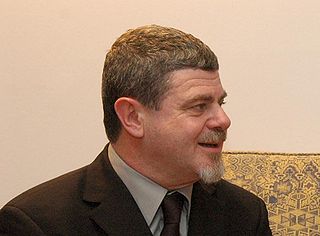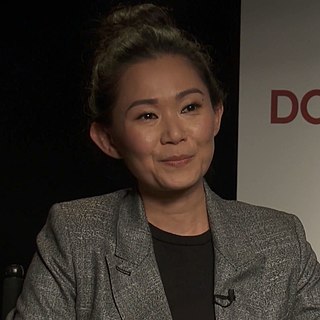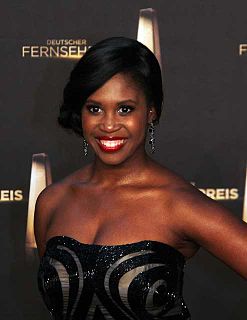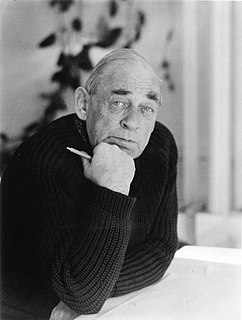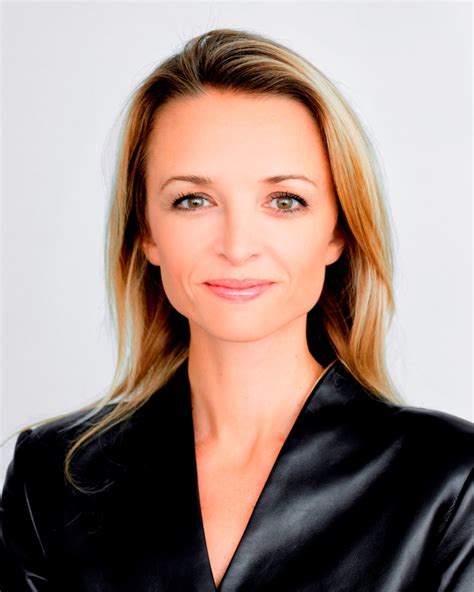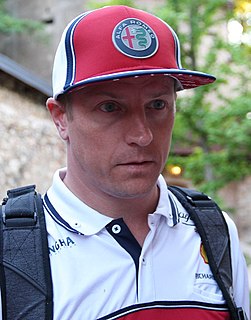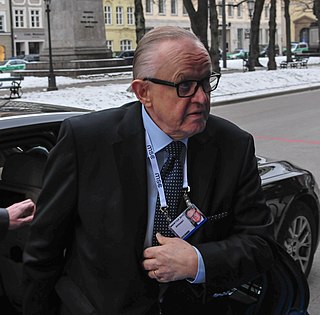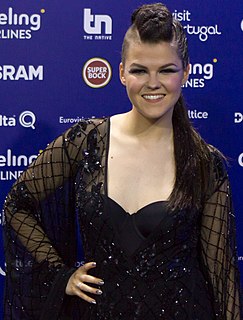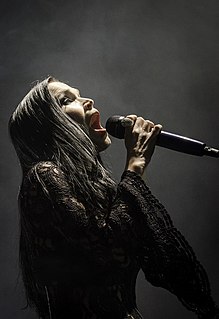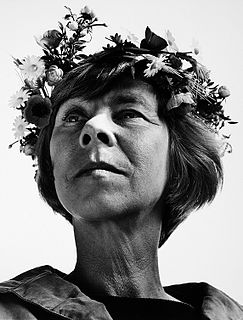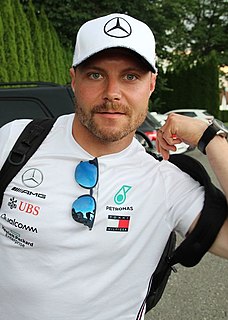A Quote by Olivia Merilahti
English has always been my musical language. When I started writing songs when I was 13 or 14, I started writing in English because it's the language in between. I speak Finnish, I speak French, so I'll write songs in English because that's the music I listen to. I learned so much poetry and the poetic way of expressing myself is in English.
Related Quotes
Actually, my first group was a folkloric group, an Argentine folkloric group when I was 10. By the time I was 11 or 12 I started writing songs in English. And then after a while of writing these songs in English it came to me that there was no reason for me to sing in English because I lived in Argentina and also there was something important [about Spanish], so I started writing in Spanish.
I have a funny relationship to language. When I came to California when I was three I spoke Urdu fluently and I didn't speak a word of English. Within a few months I lost all my Urdu and spoke only English and then I learned Urdu all over again when I was nine. Urdu is my first language but it's not as good as my English and it's sort of become my third language. English is my best language but was the second language I learned.
I spent ten years in London; I trained there. But because I started in English, it kind of feels the most natural to me, to act in English, which is a strange thing. My language is Spanish; I grew up in Argentina. I speak to my family in Spanish, but if you were to ask me what language I connect with, it'd be English in some weird way.
James Joyce's English was based on the rhythm of the Irish language. He wrote things that shocked English language speakers but he was thinking in Gaelic. I've sung songs that if they were in English, would have been banned too. The psyche of the Irish language is completely different to the English-speaking world.
Most English speakers do not have the writer's short fuse about seeing or hearing their language brutalized. This is the main reason, I suspect, that English is becoming the world's universal tongue: English-speaking natives don't care how badly others speak English as long as they speak it. French, once considered likely to become the world's lingua franca, has lost popularity because those who are born speaking it reject this liberal attitude and become depressed, insulted or insufferable when their language is ill used.
I always lived in a multilingual society (Polish-Ukrainian, German-Ukrainian, English-Ukrainian), and was open to outside linguistic influences. I think it was within three years of coming to the US that I started writing in English, although purely for myself, not trying to get it published. Living in America, I was constantly in touch with English, and Ukrainian was for me a private language.
I have a funny story to tell about English and how I came to fall in love with the language. I was desperate to fit in and spoke English all the time. Trouble was, in my household it was a no-no to speak English because somehow it is disrespectful to call parents and grandparents "you" - impersonal pronouns are offensive in Vietnamese.
The biggest issue for me has been the language because I speak so much German now. I've had to focus on my English and find more words to describe what I want to say and also soften my tone. It was quite stiff from 20 years of speaking German, so when I started speaking more English, oh my god, my tongue was like: 'Argh'!

